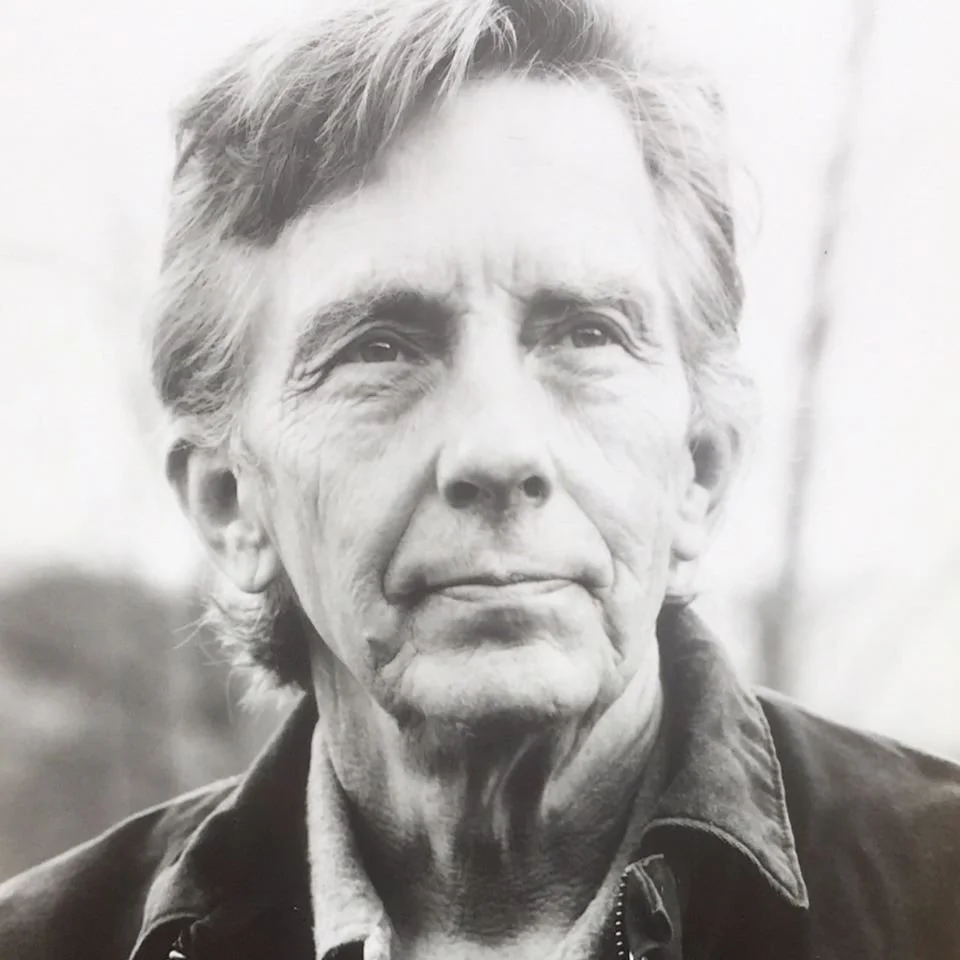Freeman House
Freeman House was a writer, social activist, and commercial fisherman turned watershed restorationist, who cofounded the Mattole Salmon Group and Mattole Restoration Council on the Mattole and Sinkyone ancestral lands of Northern California. He passed away in 2018 at the age of eighty, leaving a tremendous legacy of bioregional awareness and community-based environmental organizing through his decade’s worth of writings and the organizations he developed, which uphold his visions to this day.
Born Linn Freeman House, he was raised among the orange groves of pre-Disneyland Anaheim and later at the foot of Mount Diablo in then-undeveloped Walnut Creek. He spent his entire early life in various watersheds of California, before urban sprawl. His memories of these bioregions and witnessing them being paved over in a relatively short period of his life deeply informed his later passion for watershed and wild salmon restoration.
After a brief stint studying forestry at Oregon State University and later nearly graduating from UC Berkeley, he moved to New York City in the mid-1960s. There he served as editor and publisher of Innerspace: The Magazine of the Psychedelic Community and was also affiliated with overlapping projects such as Group Image and the Neo-American Church.
By 1967 he was back in California, having moved to San Francisco, where he became a part of the Diggers, a community of activists committed to direct social action and offerings focused on creating a “free city.” Freeman naturally focused much of his attention on publishing with their liberated underground press, which produced the Digger Papers, aka “street sheets,” and the Free City News.
He was later involved in the creation of the Planet Drum Foundation, an ecological educational organization in San Francisco dedicated to disseminating and applying bioregional concepts and re-inhabitation. He helped publish the first Planet Drum “Bundles,” informational packets to build bioregional awareness, and Raise the Stakes, the Planet Drum Review.
Throughout the 1970s he ventured north, first to Trinidad, where he brought a salvaged “free” fishing boat to start a collective, and then Puget Sound, where he was briefly a tug-boat captain and part-time fisherman. He ultimately found himself farther north in Alaska, where he worked on a commercial salmon-fishing vessel.
By the late 1970s he was visiting the Mattole Valley in Northern California, where other former Diggers had already landed. There he and Nina Blasenheim—his partner and later his wife—acquired land on which to homestead. By the time they relocated permanently, in 1980, the vision for the Mattole Salmon Group’s efforts was well underway, and the Mattole Restoration Council emerged soon after, in 1983.
Freeman spent the last four decades of his life in the Mattole Valley, tending to both community and watershed and efforts to bring the two closer together. In between directing the Mattole Restoration Council and participating in ecological and bioregional efforts throughout the United States, he published essays in magazines such as Yes!, Whole Earth, and Orion.
His first book, Totem Salmon: Life Lessons from Another Species, was published in 1999. It received the best nonfiction award from the San Francisco Bay Area Book Reviewer’s Association and the American Academy of Arts and Letters’ Harold D. Vursell Memorial Award for quality of prose. He was awarded the 2005 Lannan Literary Fellowship for Nonfiction for two years. He also cowrote with Ray Raphael Two Peoples, One Place: A People’s History of Humboldt County, which was originally published in 2007.
The home and land that he and his family cultivated on the north end of the Lost Coast is still tended to by Nina and their daughter Laurel and her family. The Mattole Salmon Group and Mattole Restoration Council both remain thriving community-based organizations forty years later.

